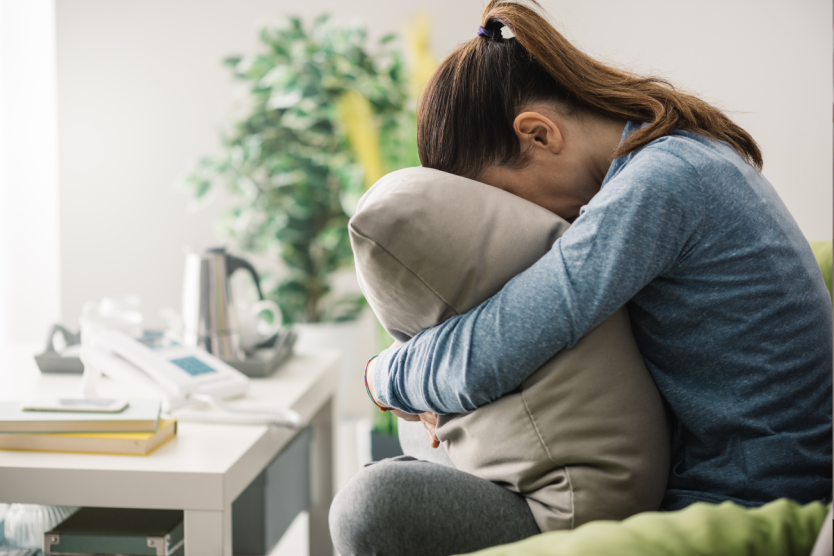A growth in your uterus can have a range of impacts, from no symptoms to severe side effects.
In the case of uterine polyps, different women are impacted in different ways.
Uterine polyps are one of the conditions that can occur in a woman’s pelvis. Polyps are growths that attach to the inner wall of the uterus, and into the uterine cavity. Symptoms can include irregular menstrual bleeding or heavy bleeding.1
But can uterine polyps cause fatigue? Let’s take a look at what you can expect if you have been diagnosed with uterine polyps.
Understanding Uterine Polyps
Uterine polyps are formed by an overgrowth of cells in the lining of the uterus, known as the endometrium. They attach to the uterine wall by a base or stalk. Uterine polyps are also known as endometrial polyps.1
The polyps can also range in size from very small to several inches, the size of a golf ball or larger. Women can have one or many polyps. While uterine polyps usually stay within your uterus, they sometimes slip down through the opening of the uterus, or the cervix, and into your vagina.1
They are most often noncancerous or benign, but some can be cancerous or eventually turn into cancer.1 Polyps may cause problems with periods or fertility if they’re left untreated.2 Polyps are prone to bleeding, and if they grow large, they sometimes contribute to infertility and miscarriage. Uterine polyps can develop in pre- or post-menopausal women.3
Symptoms of Uterine Polyps
Some women have no symptoms, and others have light bleeding or spotting. Abnormal bleeding is the most common symptom of uterine polyps, which includes irregular menstrual bleeding (frequent, unpredictable periods), bleeding between periods, excessively heavy periods and vaginal bleeding after menopause. Some women suffer from infertility as a result of polyps.1 There are also times when bleeding after sex can be a sign of polyps.2
How common are uterine polyps? They are the most frequently observed growth of the uterus and they are usually benign. The exact prevalence is not known, but polyps have been implicated in about 50% of cases of abnormal uterine bleeding.4
Can Uterine Polyps Cause Fatigue?
If you’re feeling tired, you may wonder if uterine polyps cause fatigue. It has been found that women are more likely to suffer from sleep disorders than men, particularly during menopause and with advancing age. The incidence of sleep disorders ranges from 16% to 47% at peri-menopause (the time when you begin to transition into menopause) and 35%–60% at postmenopause.5
But is that tired feeling from polyps? It could be if you have been living with heavy menstrual bleeding. Over time that heavy bleeding can cause symptoms of anemia, such as tiredness, fatigue or shortness of breath.6 This type of bleeding accounts for 5%–10% of the women in perimenopause that have iron deficiency anemia (IDA).7
It’s important then to seek medical attention if you feel tired and you think it’s because of heavy bleeding from polyps. Even if you aren’t tired all the time, see your doctor if you have bleeding between periods, irregular menstrual bleeding, or vaginal bleeding after menopause.1
There’s also the possibility that you don’t have uterine polyps at all, but another condition. Diagnosis is important, because other ailments known as a pelvic mass include fibroids, endometriosis, adenomyosis, an ectopic pregnancy, or ovarian cysts. There’s also the possibility of a bowel obstruction or a renal organ enlargement.8
The symptoms of polyps combined with fatigue could also be a sign that your body has inflammation, such as pelvic inflammatory disease, or some other condition that is causing the fatigue.
See A Doctor
Uterine polyps have similar symptoms as other growths in the pelvis, including fibroids and endometriosis.
If you suspect you have a growth, or you need advice about your uterine polyps, use our Physician Finder to find a doctor near you with expertise in women’s health. There are effective treatment options once diagnosed with uterine polyps.




















